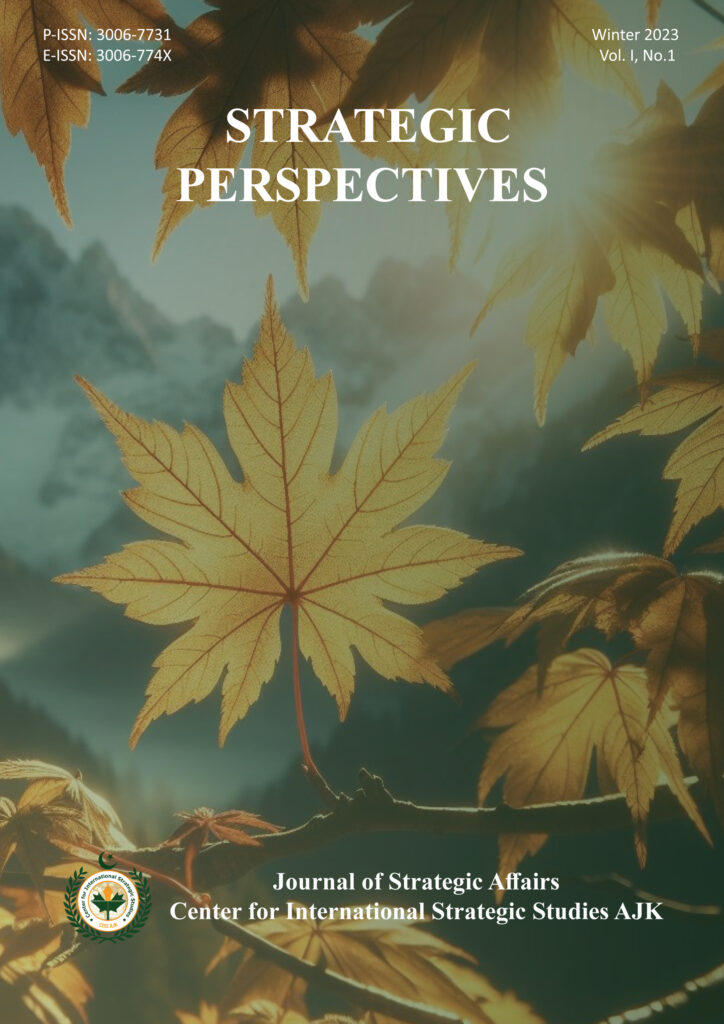Vol. I No. 1 (2023): Strategic Perspectives, Winter 2023
Gender Dynamics in Indian Illegally Occupied Jammu and Kashmir: Exploring UNSCR 1325 through an Intersectional Lens
Hareem Fatima, Syeda Shafia Batool & Nabeel Hussain

Published December 29, 2023
Abstract
The protracted state of conflict in Kashmir has inflicted profound suffering on its people with Kashmiri women predominantly bearing the brunt of suffering. Their rights have been brutally violated since then. Even after the revocation of articles 370 and 35-A, the situation remains dire, making them equivalent to a colony deprived of their most basic rights and necessities. Women being disproportionately affected by this upheaval, are further subjected to marginalization with their voices suppressed and their autonomy compromised. They are frequently assigned the position of victims, with their opinions obscured throughout peace-making processes and negotiating procedures. While India maintains a rhetorical commitment to the Women, Peace and Security (WPS) agenda at international forums, it fails to extend these values at the domestic realm. United Nations Security Council Resolution (UNSCR) 1325 is a genuine hope for the women of Kashmir to participate in peace-making processes and to safeguard their rights. By adopting an Intersectional approach to the existing framework of WPS, the research aims to demonstrate the interplay of multiple factors that determine the trajectory of woman’s life in Kashmir. This study advocates for the urgency of Implementation of UNSCR 1325 by Indian government to address the multifaceted challenges faced by Kashmiri women in the face of conflict. The successful implementation of UNSCR 1325 is both a moral necessity and a strategic step toward constructing a more inclusive and resilient society in the conflict-affected region.
Key Words
Women of Kashmir, UNSCR-1325, Women Peace and Security, Intersectionality, Kashmir Public Safety Act.
